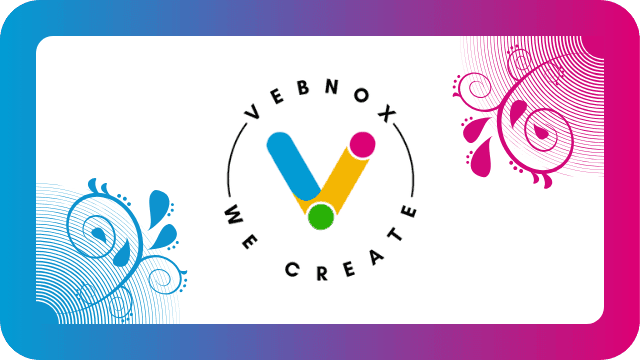Essential App Development Services for iOS: A Comprehensive Guide
Table of Contents
Introduction to iOS App Development
In today’s digital landscape, the significance of iOS app development cannot be overstated. With the ever-increasing reliance on mobile devices, businesses are recognizing the benefits of tapping into the vast iOS user base. Apple’s iOS ecosystem boasts a loyal customer demographic that often exhibits high levels of engagement with mobile applications. This user engagement translates into enhanced revenue potential, as studies indicate that iOS users tend to spend more on applications compared to their Android counterparts.
Furthermore, market trends indicate a growing inclination toward mobile application development among businesses. As the demand for interactive apps rises, many organizations are seeking professional app development services to create user-friendly apps that cater to their target audiences. This shift underscores the necessity for companies to invest in iOS application development, allowing them to remain competitive in their respective industries. The increase in remote working and digital interactions further accelerates the need for effective mobile solutions that facilitate seamless communication and improve customer engagement.
Investing in custom app development is not merely a trend; it is becoming essential for businesses aiming to establish a strong digital presence. Companies that partner with dedicated mobile development agencies can leverage app solutions tailored to their unique requirements. In doing so, businesses can enhance their visibility and appeal within the crowded app marketplace. To achieve optimal results, it is crucial for app development experts to focus on critical aspects such as app functionality, mobile app design, and cross-platform mobile development.
The dynamic nature of the mobile app industry necessitates a thorough understanding of the factors driving iOS app development. Embracing these advancements can empower organizations to harness the full potential of mobile application development, paving the way for future growth and success in an increasingly competitive environment.
Understanding the iOS Ecosystem
The iOS ecosystem is a robust framework that supports a wide range of devices, notably the iPhone and iPad, and has undergone a series of advancements with various operating system versions. This ecosystem is essential for developers aiming to deliver high-quality mobile application development. The iOS platform presents unique opportunities and challenges that influence app design and performance. Familiarity with these elements is crucial for achieving optimal app functionality.
iOS devices benefit from a tightly controlled environment that enhances user experience through seamless integration between hardware and software. With Apple’s focus on quality, apps that are developed within this realm must adhere to stringent guidelines to ensure they meet Apple’s standards. For developers, this means engaging with the specific requirements for iOS app design, which must tackle nuances such as screen resolution across different devices and operating system specifications. Developing iOS applications without understanding these parameters could hinder their performance on the App Store.
The App Store serves as a central hub for app dissemination, where user feedback and ratings significantly impact app success. For an app development company, understanding the competitive landscape is essential. This involves recognizing market trends and frequently updating applications to maintain user engagement and satisfaction. App management and testing processes play critical roles here, particularly as users increasingly expect user-friendly apps that are both functional and visually appealing.
The popularity of interactive apps within the ecosystem highlights the importance of a tailored user experience. By leveraging professional app development and insights into the iOS ecosystem, mobile development agencies can optimize their offerings, thereby enhancing their mobile solutions for the end-users. Emphasizing these elements during the custom app development process will pave the way for successful app launches and sustained user interest in a competitive marketplace.
Key iOS App Development Services
The landscape of iOS app development is multifaceted, offering various services tailored to meet distinct user needs and business objectives. Among these, native app development stands out as a primary choice for enterprises that seek to leverage the complete functionality and performance of Apple’s ecosystem. This service enables developers to create robust applications optimized for the iOS platform, ensuring smooth user experiences and rapid access to device features. Businesses requiring high performance and rich functionality typically benefit from this approach, as it often results in superior app responsiveness and reliability.
In contrast, cross-platform development has gained traction for its ability to produce applications that function seamlessly on multiple platforms, such as iOS and Android. This approach is particularly advantageous for startups or businesses aiming to minimize costs while reaching a broader audience. With cross-platform mobile development, businesses can create user-friendly apps that preserve a consistent look and functionality across devices, thus enhancing their mobile solutions without compromising on quality.
Another critical component of iOS app development is UI/UX design, which is essential for creating attractive and intuitive interfaces. An engaging mobile app design can significantly impact user retention and satisfaction. Professional app development agencies prioritize mobile user experience, leveraging design principles to ensure applications interact with users effectively. App design and development should encompass not only aesthetics but also intuition, maximizing functionality and ease of use.
Moreover, bespoke solutions such as custom app development offer businesses tailored functionalities to meet specific requirements. Custom mobile apps can provide unique app features that differentiate a business from its competitors. Engaging app solutions that incorporate personalized elements can enhance app management and functionality, ultimately leading to greater user satisfaction.
The App Development Process: From Idea to Launch
The app development process for iOS is a systematic approach that transforms an initial concept into a fully functioning mobile application. This journey begins with the idea formulation stage, where app developers work closely with stakeholders to understand the purpose, target audience, and desired functionality of the app. This foundational phase is pivotal, as it provides clarity on the project scope and sets the direction for further development.
Following the idea phase, the next step involves mobile app design. This includes both the user interface (UI) and user experience (UX) design, crucial to ensuring a user-friendly app. Employing best practices in iOS app design can significantly enhance mobile user experience. Utilizing tools for prototyping and mockups during this phase helps visualize the app, enabling feedback that can lead to refinements before coding begins.
The coding phase, often regarded as the core of mobile application development, follows design approval. This is where app development experts employ programming languages and frameworks suited for iOS, such as Swift or Objective-C. During this stage, the focus is on app functionality, building interactive apps that meet the specifications defined earlier. Ensuring adherence to coding standards is essential for maintainability and scalability.
After coding, rigorous app testing is conducted to identify any bugs or performance issues. This stage is vital to ensure the final product is reliable and meets the high standards expected by users. Functional testing, usability testing, and performance testing are key components of this process. Once all issues are resolved, the app is ready for deployment in the App Store, where the marketing strategy can help in attracting users.
Careful management post-launch, including updates and collecting user feedback, is crucial for the app’s success. An app development company that prioritizes ongoing support and app management can increase the longevity and relevance of the app in the fast-paced mobile market.
Choosing the Right iOS App Development Company
When it comes to iOS app development, selecting the right development partner is crucial for the success of your project. The first step in making an informed decision is to evaluate the portfolio of potential app development companies. A comprehensive portfolio will showcase a range of previous mobile app development projects, highlighting the company’s ability to handle various app functionalities and designs tailored to different industries. It is beneficial to look for an app development company that has experience in developing user-friendly apps that meet the specific needs of your target audience.
Expertise in iOS app development is another vital factor. Assess whether the company has a team of capable app development experts proficient in the latest iOS technologies and frameworks. Understanding their approach towards app design and development is also important, as this will influence the mobile user experience your app will offer. Look for development agencies that keep up with ongoing updates in the iOS ecosystem to ensure that they can deliver a high-quality product.
Customer reviews and testimonials provide invaluable insights into the experience of past clients. A positive track record signifies a reliable development partner. Additionally, evaluating the communication skills of the development agency can shed light on their collaboration style; transparent and efficient communication is essential throughout the mobile application development process.
Lastly, consider the post-launch support and app management services offered by the company. A good mobile development agency should provide ongoing maintenance and updates to ensure the continued functionality of your app post-launch. By keeping these factors in mind—portfolio evaluation, expertise, client feedback, effective communication, and robust post-launch support—you can confidently choose the right custom mobile apps development partner to enhance your business’s mobile solutions.
Trends Shaping iOS App Development
The field of iOS app development is constantly evolving, with numerous trends significantly affecting how apps are designed and developed. One of the most noteworthy trends is the increasing adoption of Swift, Apple’s powerful programming language. Swift not only streamlines the development process but also enhances the performance of the app. Its ability to reduce code complexity while ensuring safety and efficiency makes it a preferred choice among app development experts, enabling the creation of robust and user-friendly apps for iOS devices.
Additionally, the integration of Artificial Intelligence (AI) and Machine Learning (ML) into mobile application development is transforming the user experience. Developers are leveraging AI to create more personalized and interactive apps that can adapt to user preferences and behavior. This trend not only enhances app functionality but also drives user engagement and retention, thus setting the stage for innovative app solutions. As businesses increasingly seek custom mobile apps, the demand for AI-driven features will likely continue to rise, influencing the overall app development strategies.
Augmented Reality (AR) is another trend rapidly gaining traction in iOS app development. With applications ranging from gaming to retail, AR enhances the way users interact with their environments through digital overlays. This innovative technology allows mobile app developers to create immersive experiences that captivate users. Similarly, as the Internet of Things (IoT) continues to expand, the integration of IoT in mobile app design is shaping how apps communicate with connected devices, offering seamless interfaces and functionalities. As a result, app development companies are increasingly focusing on creating cross-platform mobile applications that ensure compatibility and innovation across various devices.
As these trends continue to evolve, they will not only dictate the functionalities and capabilities of new apps but also provide businesses with unique opportunities to enhance their mobile solutions, address user needs, and maintain a competitive edge in the market.
Budgeting for Your iOS App Development Project
When embarking on an iOS app development project, having a well-defined budget is crucial. The costs associated with mobile application development can vary significantly based on several key factors that should be taken into account during the planning phase. Understanding these variables can aid businesses in allocating their resources efficiently and ensuring their projects’ success.
One essential factor influencing the budget is the complexity of the app. Custom app development that includes advanced features, such as interactive apps or specialized functionalities, will naturally require more financial investment compared to simple applications. As you assess the desired app functionality, it is important to consider how each feature will impact both the development process and the overall timeline.
Another critical element is the choice of the development platform. Developing cross-platform apps often entails a different budgetary approach than focusing solely on iOS app development. Moreover, you may need to consider the costs associated with developing an Android version in the future. However, utilizing a mobile development agency that excels in cross-platform mobile development can provide cost-saving benefits by enabling you to reach a broader audience while sharing resources between platforms.
Additionally, mobile app design plays a significant role in determining costs. High-quality iOS app design not only enhances user experience but often requires experienced app design and development teams to ensure the interface is both appealing and user-friendly. Thus, budgeting for professional app development also means factoring in design fees. It is also advisable to allocate funds for ongoing maintenance, app testing, and updates to ensure your app remains functional and competitive in the market.
In conclusion, effective budgeting for an iOS app development project involves assessing various factors, such as complexity, platform choice, design expectations, and long-term maintenance needs. By considering these aspects, businesses can create a realistic financial plan that bolsters the likelihood of successfully launching and managing their mobile solutions.
Marketing Your iOS Application
Effective marketing strategies play a crucial role in the success of any iOS application. Once development is complete, the next step is to ensure that the app reaches its intended audience and achieves sustained growth. One of the primary methods to enhance your application’s visibility is through App Store Optimization (ASO). ASO involves optimizing various elements of your app listing, including keywords, title, and description, to improve its ranking in the App Store search results. Using relevant keywords related to app development, such as “mobile app development” and “iOS app development,” can significantly help improve visibility. Moreover, providing a captivating app preview and using eye-catching icons will contribute to a higher conversion rate.
Another potent strategy for promoting your iOS application is leveraging social media platforms. Engaging with potential users on platforms like Twitter, Facebook, and Instagram allows for effective communication of app features and benefits. Content such as video demos, user testimonials, and interactive posts can boost user engagement and create a buzz around your app. Furthermore, collaborating with influencers in the mobile app domain can provide additional exposure and credibility.
In addition to traditional marketing methods, feedback from users plays a pivotal role in refining your app’s features and enhancing its functionality. Encouraging users to leave reviews not only helps in improving app management but also boosts credibility and trust among potential users. Responding to feedback, whether positive or critical, fosters a sense of community and shows users that their opinions are valued, thereby improving the overall user experience.
Adopting these strategies forms the basis of a robust marketing plan and can help iOS developers achieve better visibility and engagement for their applications, exemplifying the importance of a comprehensive approach to app marketing in the highly competitive mobile app landscape.
Conclusion: The Future of iOS App Development
As we have explored throughout this guide, the significance of professional app development services for iOS cannot be overstated. With the rapid evolution of technology and an ever-growing user base, businesses must invest in top-tier mobile application development to remain relevant. The landscape of iOS app development is shaped by various factors, including user expectations, design preferences, and technological advancements. The need for user-friendly apps that deliver exceptional mobile user experiences has never been greater. This trend calls for continuous innovation and high standards in both iOS app design and development.
Companies specializing in app development must keep pace with these changes by adopting modern methodologies and technologies that enhance app functionality. Custom app development, particularly in the realm of interactive apps and cross-platform mobile development, is becoming increasingly vital. Organizations should collaborate with experienced app development experts and mobile development agencies, such as Vebnox App Services, to obtain tailored solutions that meet their unique needs. This collaboration can lead to the creation of engaging mobile app features that resonate well with the target audience and further drive user engagement.
Moreover, as the demand for mobile solutions escalates, businesses should prioritize app testing and management to ensure their offerings are robust and secure. The integration of advanced tools in mobile app design, including iOS app design and Android app design, will not only improve aesthetics but also enhance overall functionality. Looking ahead, it is imperative for those in the app development for business landscape to embrace emerging trends, such as artificial intelligence and augmented reality, which have the potential to redefine mobile application development.
In conclusion, the future of iOS app development is bright and filled with potential. Businesses that prioritize investing in quality app development services will position themselves advantageously in the competitive app market, ensuring they can deliver exceptional value to their users.







Comments are closed